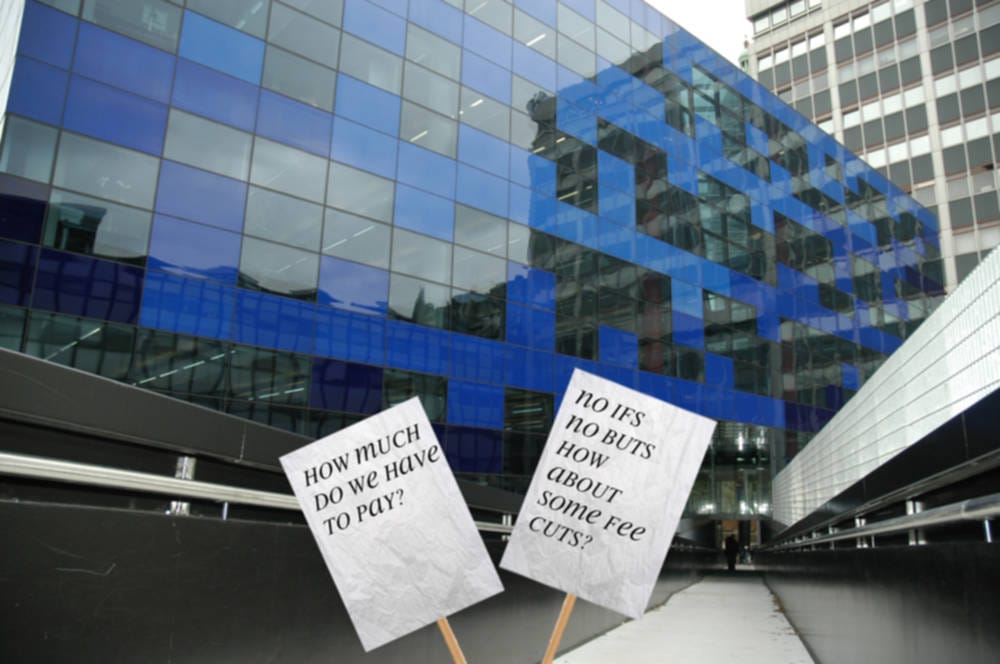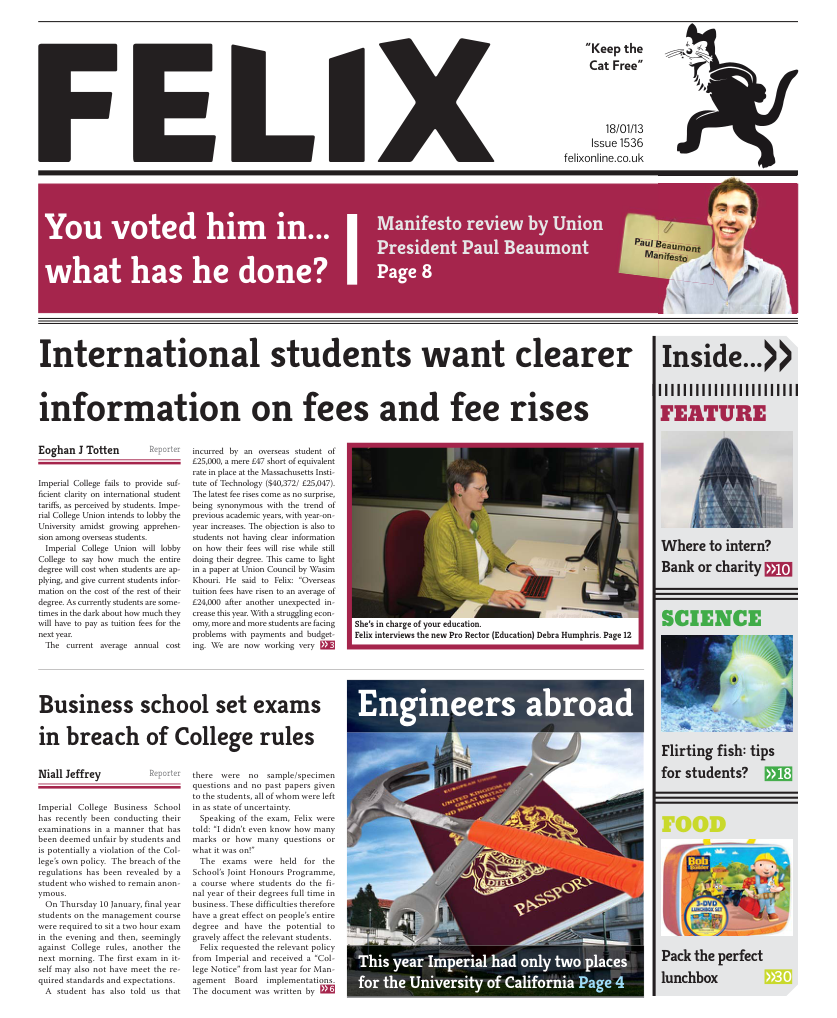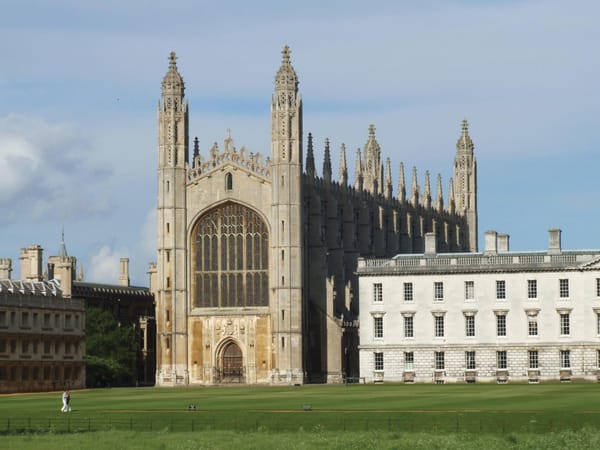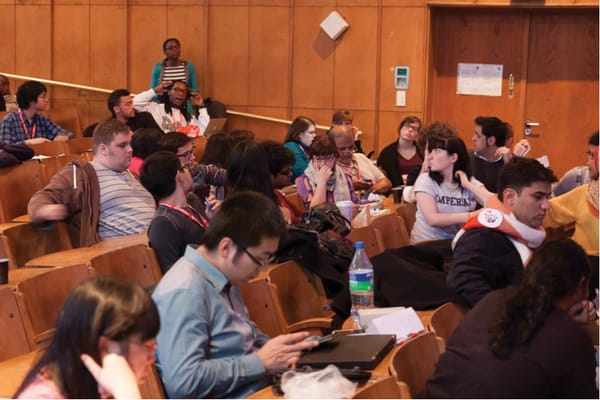International students want clearer information on fees and fee rises
Union seeks better dissemination of information

Imperial College fails to provide sufficient clarity on international student tariffs, as perceived by students. Imperial College Union intends to lobby the University amidst growing apprehension among overseas students.
Imperial College Union will lobby College to say how much the entire degree will cost when students are applying, and give current students information on the cost of the rest of their degree. As currently students are sometimes in the dark about how much they will have to pay as tuition fees for the next year.
The current average annual cost incurred by an overseas student of £25,000, a mere £47 short of equivalent rate in place at the Massachusetts Institute of Technology ($40,372/ £25,047). The latest fee rises come as no surprise, being synonymous with the trend of previous academic years, with year-on-year increases. The objection is also to students not having clear information on how their fees will rise while still doing their degree. This came to light in a paper at Union Council by Wasim Khouri. He said to Felix: “Overseas tuition fees have risen to an average of £24,000 after another unexpected increase this year. With a struggling economy, more and more students are facing problems with payments and budgeting. We are now working very hard to help all international students by asking for more transparency: it is important for us to know how tuition fees are calculated so that, hopefully, we can then design a system, which allows students to know the cost of their entire degree in advance.”
The latest fee rises come as no surprise, being synonymous with the trend of previous academic years, with year-on-year increases superlative to the rate of inflation. Addressing the issue is now a big concern for the Union, who have adopted the stance, “that the incremental rise in tuition fees, with sudden changes as experienced this year, is affecting (international) students on tight budgets. This causes student dissatisfaction, again affecting university prestige.”
This is in line with the opinion of Dominic Scott, Chief Executive of the UK Council for International Affairs, who expressed deep concern and acknowledged that students deserved increased levels of transparency.
The rhetoric spawned by the issue has emerged against the backdrop of a record number of international students applying for hardship funds in the 2012/2013 academic year. This may come as a surprise to the wider student body, with the consensus belief that overseas undergraduates are of affluent background. It converges with the Union’s concern that student budgets are being constrained more than ever. It has been speculated that only rich students will be able to come to Imperial if the University fails to take swift remedial action. As cited by Wasim Khouri, OSC chair, “Many international students have approached me this year questioning whether students can do anything to get justification from College as to the fee rise.”
It is feared that the prospective international clientele of Imperial College may become disillusioned by the fee hikes if they continue to be uninhibited and unjustified, with guardians and sponsors withdrawing financial backing for students in the wake of the current economic climate. In the interval between the academic years of 2008/2009 – 2009/2010 average fee hikes of 4.88% were imposed on students, which is above the current UK inflation rate of 2.2%.
Other Universities are experiencing a back lash from their wider respective student bodies. The University of Edinburgh has notably engaged in negotiations with its student association to de-escalate student resentment and to introduce a sustainable solution. The University of Oxford and the University of Cambridge are furthermore known to charge as much as £37,300 for a number of courses (2009/2010 figures).
Other clear action proposed by Imperial College Union is that they intend to lobby the College to “give students information on how they come up with the increase and where the money is distributed” and provide advance notification of future rises in academic tuition fees. Proposed impetuses include a signed petition, open to all (international) students, which will be forwarded to the appropriate College authorities. It has even been suggested that if nothing is done about the matter, the there may be student led protests by the international community.
The issue surrounding fee transparency is borne in context of the waning satisfaction of students at Imperial College (as indicated by the appropriate student surveys) which have the potential to affect prestigious rankings (8th Times World Universities; 2012-2013).
Felix article comparing fees at Imperial to other universities.







